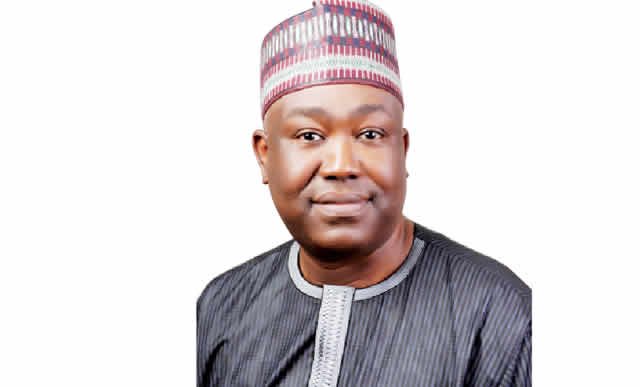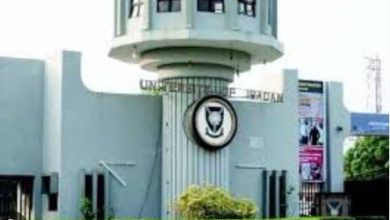
- A Presidential aspirant in the ruling All Progressive Congress, Gbenga Olawepo-Hashim, has stressed the need for recognition of public school teachers in the country, saying that they make people in the society what they are. Speaking at the launching of a book titled, “Otoge: The triumph of hope,” written by Abdulkadir Babafila, a public secondary school teacher in Ilorin, Kwara State, on Thursday, Olawepo-Hashim said that teachers, especially those in public schools, should be recognised and encouraged by the people when they do something spectacular in the society.
A Presidential aspirant in the ruling All Progressive Congress, Gbenga Olawepo-Hashim, has stressed the need for recognition of public school teachers in the country, saying that they make people in the society what they are.
Speaking at the launching of a book titled, “Otoge: The triumph of hope,” written by Abdulkadir Babafila, a public secondary school teacher in Ilorin, Kwara State, on Thursday, Olawepo-Hashim said that teachers, especially those in public schools, should be recognised and encouraged by the people when they do something spectacular in the society.
Olawepo-Hashim, who was represented by Architect Sunday Olosunde, noted that, world acclaimed literary figures such as Professor Wole Soyinka, Chinua Achebe and others like them started their literal journeys to global relevance from the Nigeria’s public schools as teachers.
According to him, before the world recognised the quality in those literary giants, they were first embraced by the Nigerian public and became respectable model for youths and students.
“It is the replica of those iconic literary figures that I see in the author of this historic book, Abdullateef Abdulkadir Babafila,” he said.
Explaining the circumstances behind his decision to accept the responsibility of launching the book, he said, “When I was contacted to be the chief launcher of the book, I knew I could not turn down the offer for one reason, which is that, the author, Babafila, is a teacher, a secondary school teacher in Kwara’s public school. I was a product of public school from primary to university level as well.
“Before now, I have turned down some invitations to launch books written on the Otoge struggle, but this one is different, especially because it is written by a public school teacher. I feel obliged to honour this invitation as a mark of recognition for all public school teachers in Nigeria.”
He also added that he could not turn down the invitation because Governor Abdulrahman Abdulrazaq has been working tirelessly to return the public school to its old glory in Kwara State, first by recruiting competent teachers through transparent process of excellence, not the usual slot sharing at ward meetings. He has been fixing public infrastructure. He has renovated over 600 schools across the state.
He maintained that, “As individuals, what we can do is to support the efforts of government by encouraging people within public institutions who are standing tall and reward them for their efforts.
“This is so because, if we do not appreciate the literary efforts of teachers in public schools and provide needed inspiration, no matter how much government invests in public infrastructure, we cannot create the required psychological boost to stimulate excellence in public institutions,” he said.
He launched the book with N3 million saying, “To appreciate this historic book, written by Abdulkadir Babafila, a public school teacher in Kwara State, and in appreciation of all public school teachers in Nigeria, I hereby launch the book, ‘Otoge: the triumph of hope’ with a token of N3 million.”
The state APC chairman, Sunday Fagbemi, in his speech at the event acknowledged that the perspective of the author is fresh and refreshing, adding that since the success of ‘Otoge’ and the assumption to office, the Kwara State Governor, Abdulrahman Abdulrazaq, is pitching his tent with the people, rather than with politicians.
Earlier, the author of the book, Abdullateef Babafila, noted that he decided to document his participation in the struggle to correct certain misrepresentation in the narrative created by other players in the political process.



